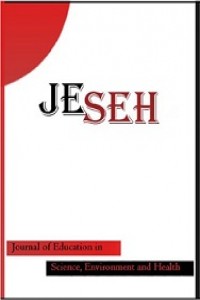The Effect of Active-Participant Experiments upon the Skills of Nursery Class Students to Recognize Measuring Instruments
Abstract
Preschool children learn through their senses. Children learn language, daily
life skills, concepts and many other things through their senses. Thus,
preschool educational environments and preschool educational activities should
stimulate children’s senses. In this context, preschool science activities and
experiments have positive effects upon children’s development and learning as
they contain skills aimed at various senses like observation, relationship
establishment, interpretation, inference and discussion. The objective of this
study is to determine the effect of active-participant experiments upon the
skills of preschool children to recognize and accurately select measuring
instruments that are encountered in daily life and used in measuring various
magnitudes. In the study, action research method was used. The study was conducted
in the school year of 2015-2016 with totally 19 children (8 male and 11 female)
aged 48-60 months. A total of 6 experiments (mass, weight, volume, length,
temperature and time) were performed in 3 weeks to measure two magnitudes each
week. In order to collect the study data, the researchers developed a measuring
instrument of totally 6 questions, 3 of which were distracting. As a result of
the study, it was determined that the experiments were effective upon the
skills of children to recognize and accurately select measuring instruments
that were used in measuring daily life magnitudes like mass, weight, volume,
length, temperature and time.
References
- Sapsaglam, O. & Bozdogan, A.E. (2017). The effect of active-participant experiments upon the skills of nursery class students to recognize measuring instruments. Journal of Education in Science, Environment and Health (JESEH), 3(1), 100-109.
Abstract
References
- Sapsaglam, O. & Bozdogan, A.E. (2017). The effect of active-participant experiments upon the skills of nursery class students to recognize measuring instruments. Journal of Education in Science, Environment and Health (JESEH), 3(1), 100-109.
Details
| Journal Section | Articles |
|---|---|
| Authors | |
| Publication Date | January 31, 2017 |
| Published in Issue | Year 2017 Volume: 3 Issue: 1 |



